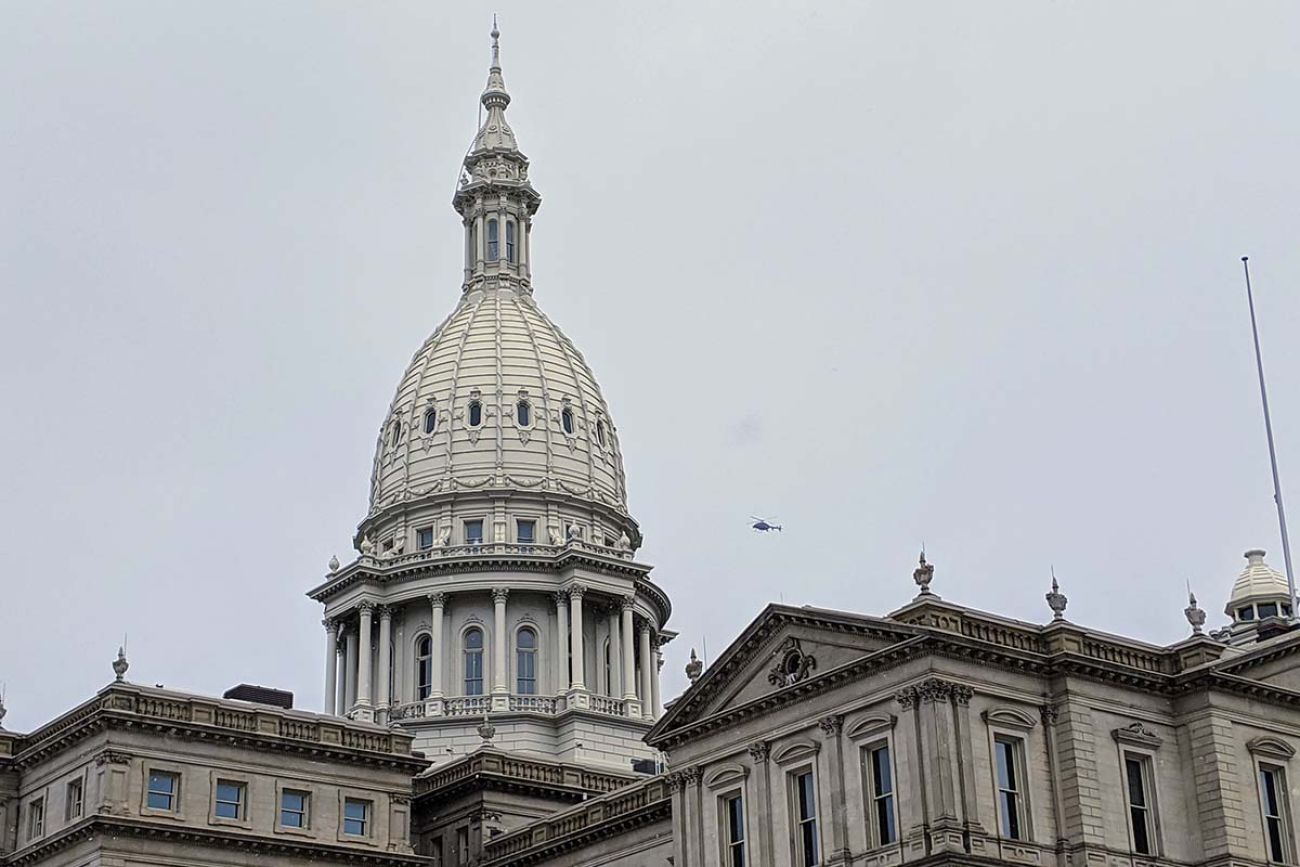Michigan House will soon be divided between Dems, GOP. Gridlock coming?

- Michigan House will soon see 54-54 split after two House Democrats prevailed in mayoral races
- The new dynamic will further complicate Democrats’ efforts to pass their agenda and could prompt gridlock
- One progressive says ‘there’s a lot of cynicism out there’ about Democrats’ ability to deliver on their promises
LANSING — A year after securing majority control of the Legislature for the first time in decades, Michigan Democrats are scrambling to pass what priorities they can before they lose it again.
With Tuesday’s election wins of Reps. Lori Stone, D-Warren, and Kevin Coleman, D-Westland, for mayor in their respective cities, the House will soon be divided 54-54, a scenario which prevents the caucus from passing bills without some support from Republicans.
In what House Speaker Joe Tate, D-Detroit, called the “worst-kept secret” in Lansing, House and Senate Democrats are expected to close up shop for the year by the end of the week, avoiding — at least for now — the test of a tied Legislature.
Related:
- Michigan election results: Coleman, Stone win mayor bids; Dems lose House edge
- Michigan’s marijuana industry jolted by Ohio legalization, local vote defeats
- Ranked-choice voting passed in three cities, but Michigan law prohibits it
“Our focus right now is how we can get our agenda done,” Tate told reporters Wednesday. “We'll see once those seats are vacated how we move forward in terms of operations.”
House Republican Leader Matt Hall, R-Richland Township, wrote on social media that the shift marks “a new era in Lansing.”
“House Democrats have a choice to make: Together we can forge compromise and achieve the most productive months of the session, or…leadership can take their ball and go home until next spring,” Hall wrote.
In fact, the tie not only affects the House, but the entire Legislature: While the Senate is secure for Democrats, the lower chamber is required to also approve legislation, creating the possibility of gridlock.
The tie will be Michigan’s first since 1994. Democrats in Pennsylvania are facing a similar situation, where Tuesday’s elections brought the Pennsylvania state House to a 101-101 tie.
Because both of the soon-to-be-vacated seats in Wayne and Macomb counties trend Democratic, the loss of majority could be reversed next year if Gov. Gretchen Whitmer quickly calls special elections.
The Secretary of State Office has said it would take about four months to schedule them.
House rules stipulate that Tate would retain control of the Legislature in the interim, but the looming tie complicates an already-complicated process of advancing Democratic priorities.
Stone and Coleman are expected to make their exits in a few days or weeks at most, prompting Democrats to rush to adopt a slew of priorities, including repeals of abortion restrictions, energy mandates to require clean power by 2040 and legislation granting state officials permitting authority over big renewable energy projects.
In both the House and Senate, lawmakers were hunkering down in preparation for a late night Wednesday.
As of 6 p.m., both chambers were still in session.
Disagreements among Democrats in recent weeks have blocked a change to local property tax rules backed by Detroit Mayor Mike Duggan, triggered major revisions to the abortion rights bills supported by Whitmer and bogged down a package codifying financial disclosure rules lawmakers are constitutionally required to implement by the end of the year.
Tate said Wednesday he hasn’t written off the prospect of working with Republicans on issues like economic development, lowering prescription drug costs and other issues that could garner bipartisan support.
He characterized their relationship as “positive.”
But if Democrats can’t make headway with Republicans, a split-majority House cuts into the time Democrats have to focus on policy issues before attention shifts to 2024 elections, where many lawmakers in competitive political districts will have to fight to defend their seats and their party’s control.
MoReno Taylor II, executive director of the group Fund MI Future and a former House Democratic staffer, said many of the people who helped catapult the party to majority control likely “expected more” from Democrats who ran on bread-and-butter issues like improving education, addressing environmental issues or investing more in local community needs.
“All indications are that when they do return to power, the people want to see some progress made on these progressive issues that they ran on,” he said. “Of course, when they get the majority back, they're going to be out running again, promising probably to do progressive things that they still haven't accomplished yet. So I think there's a lot of cynicism out there.”
Elsewhere in Lansing, government officials are preparing for the Legislature to wind down operations for the year.
On Wednesday morning, Democrats on the Michigan Legislature's joint rules committee voted to waive a customary 15-session day wait period for a handful of administrative rules to take effect.
The rules would have otherwise taken effect Dec. 1, but affected state departments requested waivers "not knowing when session was going to end," an official with the Michigan Department of Health and Human Services said.
See what new members are saying about why they donated to Bridge Michigan:
- “In order for this information to be accurate and unbiased it must be underwritten by its readers, not by special interests.” - Larry S.
- “Not many other media sources report on the topics Bridge does.” - Susan B.
- “Your journalism is outstanding and rare these days.” - Mark S.
If you want to ensure the future of nonpartisan, nonprofit Michigan journalism, please become a member today. You, too, will be asked why you donated and maybe we'll feature your quote next time!




